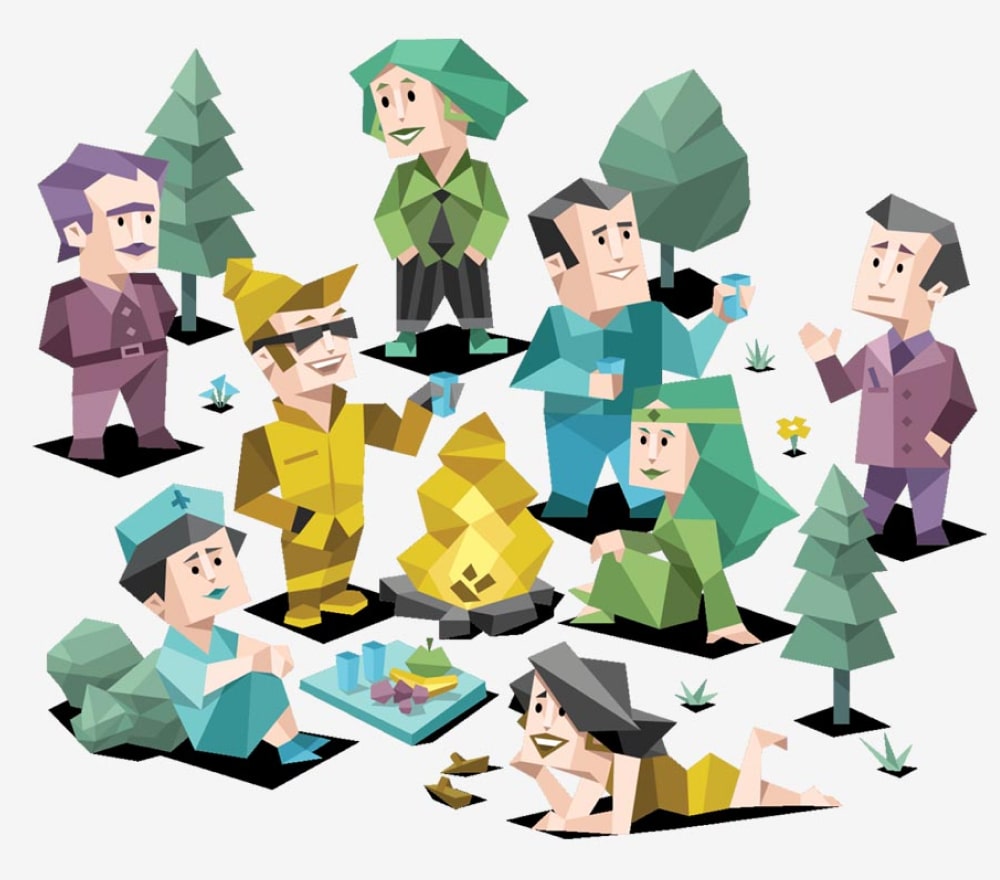The Basics of the 16 Personality Type Test

Take 16 Personalities Test (MBTI)
Get StartedThe 16 personality type test is a powerful tool that has gained popularity worldwide for its ability to provide deep insights into one's character traits. This test is based on the work of the famous psychologists Carl Jung and Isabel Briggs Myers. It categorizes individuals into 16 unique personality types, offering a framework to understand behaviors, preferences, and interactions with others. By knowing your type, you can enhance personal growth, improve communication, and even advance your career. In this article, we'll explore the various aspects of the test, helping you grasp its significance in today’s world.
The Origins and Development of Personality Testing
The concept of categorizing personalities has been around for centuries, but the structured approach started with Carl Jung's theory of psychological types in the 1920s. This eventually led to the development of the Myers-Briggs Type Indicator (MBTI) by Isabel Briggs Myers and her mother, Katharine Cook Briggs. Their goal was to make the work of Jung practical and accessible to all. Over the years, various iterations and improvements have been made, leading to what we refer to as the big 16 personality test today. It maintains the core ideas but incorporates modern research to enhance accuracy and reliability.
Discover the Perks of Personality Testing
Engaging in a 16 personality types quiz can provide numerous benefits. It allows individuals to gain self-awareness and understanding of their core characteristics. By identifying strengths and weaknesses, you can work on personal development effectively. Diving into the exploration of 16 personality types test can be a fascinating journey, offering profound insights that can transform both professional and personal relationships. This test not only aids in understanding and appreciating diverse communication styles but also fosters effective conflict resolution. Many individuals find that this journey of self-discovery acts as a catalyst, sparking significant positive change in their lives.
Applications of the 16 Personalities Types Test
- Self-awareness and personal growth
- Career guidance and job suitability
- Improved team dynamics and leadership abilities
- Enhanced interpersonal relationships
Taking the 16 Personality Types Test
If you're considering diving into this self-discovery process, you might wonder where to start. Fortunately, several platforms are offering the 16 personality type test for free. This makes it accessible to a vast audience, removing the barrier of cost. The free versions are often quite comprehensive, providing detailed reports and analysis similar to paid ones. Whether you are an individual seeking personal growth or an organization aiming to improve team dynamics, these free tests offer a valuable resource for understanding and applying Jung's and Myers' theories.
Breaking Down the 16 Personality Types
The 16 personality types questionnaire divides personalities into distinct categories based on four dichotomies: Introversion/Extraversion, Sensing/Intuition, Thinking/Feeling, and Judging/Perceiving. By deciphering where an individual falls on each scale, the test allocates one of the 16 personality types. Below is a simple breakdown of these dichotomies:
| Dichotomy | Characteristics |
|---|---|
| Introversion vs. Extraversion | Focus on inner world vs. external world |
| Sensing vs. Intuition | Focus on present facts vs. future possibilities |
| Thinking vs. Feeling | Decision based on logic vs. emotions |
| Judging vs. Perceiving | Preference for structure vs. flexibility |
FAQ on the 16 Personality Type Test
- What is the main purpose of this test?
The primary goal of the test is to improve self-awareness by identifying personality types that reveal individual differences in how people perceive the world and make decisions.
- How accurate is the personality test for 16 personality types?
While the test is based on established psychological theories, its accuracy depends largely on how honestly and accurately a person answers the questions.
- Can I take the 16 personality types test for free online?
Yes, several platforms offer the test for free online, providing detailed insights at no cost.
- How long does it take to complete the test?
On average, the test takes between 10 and 30 minutes to complete, depending on the platform and your reading speed.
- Is the test applicable in professional settings?
Absolutely. Many organizations use the 16 personality types test for team building, leadership development, and improving workplace communication.
The 16 personalities types test journey is not just about exploring your inner traits; it’s a gateway to personal and professional development. As you learn more about your personality type, you gain essential insights that can guide you through various life challenges. Should you wish to delve deeper into the dynamics of your personality and how it affects your everyday interactions, this test remains a valuable resource. With abundant opportunities for growth and understanding, the 16 personality types free test stands as a compelling invitation to explore the depths of who you are.
